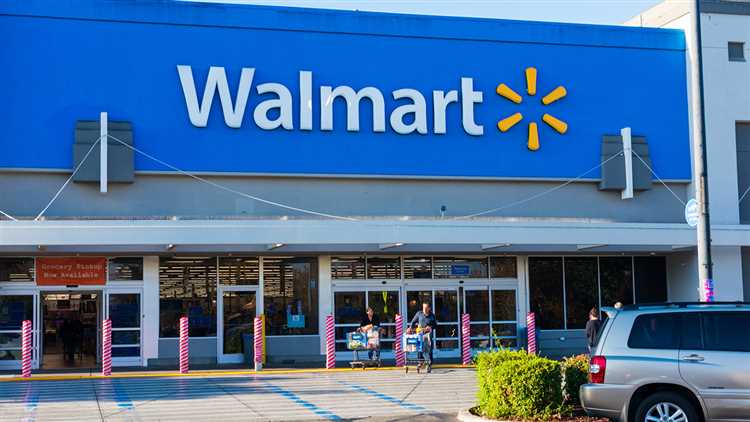
Pennsylvania is taking a bold step towards combating plastic pollution by planning to eliminate the use of plastic bags statewide. With a population of nearly 13 million people, this move will have a significant impact on reducing the amount of plastic waste generated in the state.
Plastic bags have long been a major contributor to environmental degradation. They are not only non-biodegradable but also harmful to wildlife and marine ecosystems. By phasing out the use of plastic bags, Pennsylvania aims to protect its natural resources and create a more sustainable future for its residents.
Under the proposed plan, all businesses in Pennsylvania will be required to switch to alternative packaging options, such as paper or reusable bags. This will not only reduce the demand for single-use plastics but also encourage consumers to adopt eco-friendly habits. The state will also work closely with retailers to ensure a smooth transition and provide assistance to small businesses in implementing the new regulations.
- Pennsylvania’s Ban on Plastic Bags
- Why Ban Plastic Bags?
- The Benefits of the Ban
- Impact of Plastic Bags on the Environment
- 1. Pollution
- 2. Threat to Wildlife
- Alternatives to Plastic Bags
- 1. Reusable Tote Bags
- 2. Paper Bags
- 3. Biodegradable Plastic Bags
- 4. Mesh Produce Bags
- 5. Bring Your Own Bags
- Benefits of Eliminating Plastic Bags
- Challenges and Opposition to the Ban
- Steps Towards a Plastic-Free Future
- Q&A:
- What is Pennsylvania’s plan to eliminate plastic bags?
- Why does Pennsylvania want to ban plastic bags?
- When will Pennsylvania’s ban on plastic bags take effect?
- What are the alternatives to plastic bags?
- Are there any exceptions to the plastic bag ban?
- What is Pennsylvania’s plan to eliminate plastic bags?
Pennsylvania’s Ban on Plastic Bags
Pennsylvania is taking significant steps towards reducing plastic waste by implementing a ban on single-use plastic bags. The state is recognizing the environmental impact of these bags and aiming to create a more sustainable future.
Why Ban Plastic Bags?
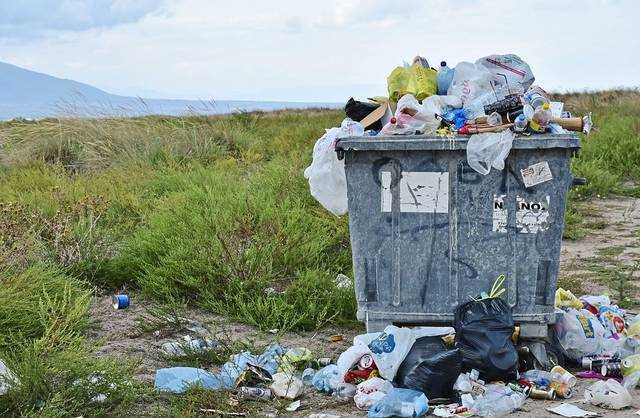
Plastic bags are a major source of pollution and environmental harm. They are non-biodegradable and can take hundreds of years to decompose. This means that when plastic bags are disposed of improperly, they can accumulate in landfills and natural environments, contributing to litter and harming wildlife.
By banning plastic bags, Pennsylvania hopes to encourage the use of more sustainable alternatives. This will help reduce the amount of plastic waste generated, protect ecosystems, and promote a cleaner and healthier environment for both humans and wildlife.
The Benefits of the Ban
The ban on plastic bags will have several positive effects. First and foremost, it will significantly reduce the amount of plastic waste in the state. By encouraging the use of reusable bags or biodegradable alternatives, Pennsylvania aims to minimize the negative impact of plastic on the environment.
Furthermore, the ban will promote a shift towards a more circular economy. By eliminating single-use plastic bags, the state will encourage businesses and consumers to adopt sustainable practices and find innovative solutions for packaging and transporting goods.
Additionally, the ban will save resources. Plastic bags are made from non-renewable fossil fuels, and by reducing their production and consumption, Pennsylvania will contribute to the conservation of these valuable resources.
In conclusion, Pennsylvania’s ban on plastic bags is a step in the right direction towards a more sustainable future. By implementing this ban, the state hopes to reduce plastic waste, protect the environment, and promote the adoption of more eco-friendly practices.
Impact of Plastic Bags on the Environment
Plastic bags are a significant contributor to environmental pollution and degradation. Despite their convenience and widespread use, plastic bags have a devastating impact on our planet.
1. Pollution
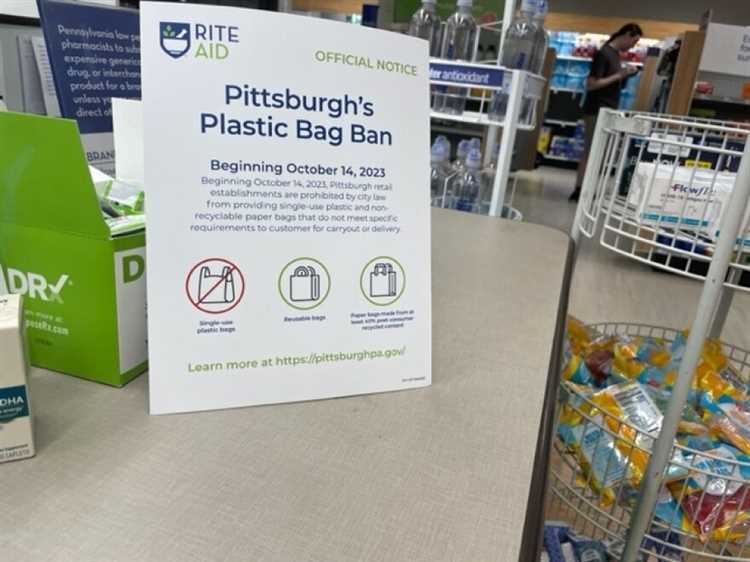
Plastic bags are non-biodegradable, which means they do not break down naturally over time. Instead, they persist in the environment for hundreds of years. When plastic bags end up in landfills or are improperly disposed of, they release toxic chemicals into the soil and water, polluting ecosystems and harming plant and animal life.
The production of plastic bags also contributes to pollution. It requires significant amounts of fossil fuels, primarily oil and natural gas, to produce plastic bags. This process releases greenhouse gases and other pollutants into the atmosphere, contributing to climate change and air pollution.
2. Threat to Wildlife
Many animals mistake plastic bags for food or become entangled in them, leading to injury, suffocation, or death. Marine animals, in particular, are highly vulnerable to plastic bag pollution. Sea turtles, for example, often mistake plastic bags for jellyfish, their staple food. Ingesting plastic bags can cause digestive blockages, starvation, or a slow, painful death.
The presence of plastic bags in marine environments also poses a threat to seabirds, fish, and other marine organisms. These animals can become trapped or entangled in plastic bags, hindering their ability to move, feed, or reproduce.
3. Accumulation in the Environment
Plastic bags are lightweight and easily carried by wind and water, leading to their widespread distribution in natural environments. They can accumulate in water bodies, including rivers, lakes, and oceans, and contribute to the formation of floating garbage patches. These large accumulations of plastic waste have serious ramifications for marine life, disrupting ecosystems and affecting the food chain.
The accumulation of plastic bags on land can also have negative consequences. The presence of plastic bags in parks, forests, and urban areas not only detracts from the natural beauty but also poses a risk of ingestion or entanglement for wildlife.
In summary, the impact of plastic bags on the environment is profound. They contribute to pollution, threaten wildlife, and accumulate in natural environments. Taking action to reduce plastic bag usage is crucial to mitigate these harmful effects and protect our planet for future generations.
Alternatives to Plastic Bags
As Pennsylvania plans to eliminate plastic bags, it’s important to explore alternative options for carrying and transporting goods. Here are some sustainable alternatives to consider:
1. Reusable Tote Bags
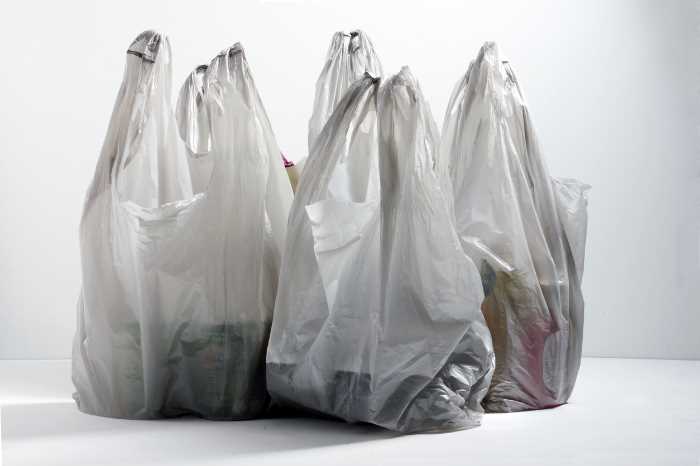
One of the most popular alternatives to plastic bags is reusable tote bags. Made from durable materials like canvas or recycled fabrics, these bags can be used multiple times and can carry a significant amount of weight. They are easy to fold and carry, making them convenient for shopping trips.
2. Paper Bags
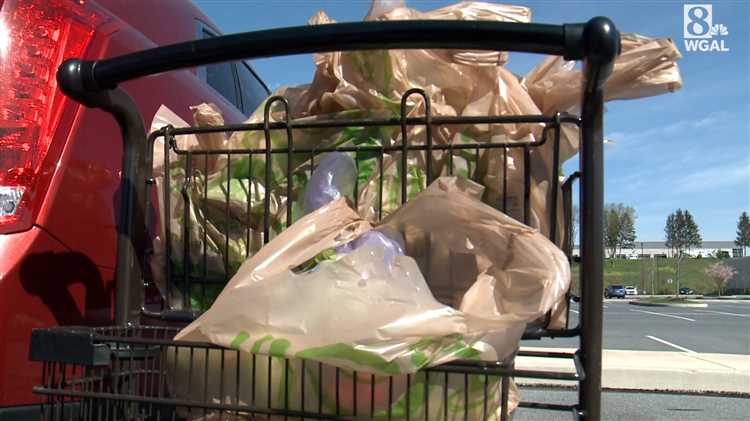
Paper bags are another option to replace plastic bags. They are biodegradable, recyclable, and can be composted. Many grocery stores already offer paper bags as an alternative to plastic, and some even provide incentives for using them.
3. Biodegradable Plastic Bags
Biodegradable plastic bags are made from plant-based materials, such as cornstarch, that break down more easily than traditional plastics. While they still contribute to waste if not properly disposed of, they are a slightly better option than regular plastic bags.
4. Mesh Produce Bags
For carrying small items like fruits and vegetables, mesh produce bags are a great alternative. These bags are lightweight, breathable, and reusable. They can also be easily washed when needed.
5. Bring Your Own Bags
The best alternative to plastic bags is to bring your own bags whenever possible. Whether it’s a reusable tote bag, backpack, or even a basket, carrying your own bags helps reduce the need for single-use plastics altogether.
By exploring these alternatives and making conscious choices, we can all contribute to reducing plastic waste in Pennsylvania and create a cleaner, more sustainable environment.
Benefits of Eliminating Plastic Bags
There are several benefits to Pennsylvania’s plan to eliminate plastic bags. By transitioning to reusable bags, the state can significantly reduce the amount of plastic waste generated and the pollution caused by these bags.
One of the main advantages of eliminating plastic bags is the positive impact on the environment. Plastic bags are non-biodegradable and can take hundreds of years to decompose. They often end up in landfills, rivers, and oceans, where they pose a serious threat to wildlife. Marine animals can mistake plastic bags for food, leading to injury or death. By getting rid of these bags, Pennsylvania can protect its ecosystems and preserve its natural beauty.
Another benefit is the reduction in energy usage and carbon emissions. The production of plastic bags requires fossil fuels, and the transportation and disposal of these bags contribute to air pollution and greenhouse gas emissions. By promoting the use of reusable bags, Pennsylvania can help decrease its reliance on fossil fuels and move towards a more sustainable future.
Furthermore, the elimination of plastic bags can have economic benefits. Reusable bags are more durable than plastic bags and can be used multiple times, reducing the need for constant repurchases. This can save consumers money in the long run. Additionally, the production of reusable bags can create local job opportunities in the manufacturing and distribution sectors.
| Benefits of Eliminating Plastic Bags |
|---|
| Positive impact on the environment |
| Reduction in energy usage and carbon emissions |
| Economic benefits: cost savings for consumers and job creation |
In conclusion, Pennsylvania’s plan to eliminate plastic bags brings various benefits, from protecting the environment and reducing pollution to saving energy and creating economic opportunities. By adopting reusable bags, the state can take a significant step towards a greener and more sustainable future.
Challenges and Opposition to the Ban
The proposed ban on plastic bags in Pennsylvania is facing several challenges and is being met with opposition from various stakeholders.
- Businesses: Many businesses, especially smaller retailers, are concerned about the additional cost of using alternative packaging materials. They argue that plastic bags are cheap and convenient, and switching to alternatives such as paper or cloth bags would significantly increase their expenses.
- Consumer Behavior: Some opponents of the ban argue that it will be difficult to change consumer behavior. Plastic bags are deeply ingrained in people’s daily lives, and it may take time for consumers to adapt to using reusable bags consistently. They fear that the ban will lead to a resistance among consumers and a possible backlash against retailers.
- Job Losses: The plastic bag industry in Pennsylvania employs a significant number of people. If the ban is implemented, there may be job losses, particularly in manufacturing and distribution sectors related to plastic bags. Workers and trade unions are concerned about the potential impact on employment opportunities.
- Environmental Considerations: While the ban is primarily aimed at reducing plastic waste, some opponents argue that alternative packaging materials also have negative environmental consequences. For example, paper bags require cutting down trees, and cloth bags require considerable energy and water to produce. Critics suggest that more comprehensive solutions should be considered, such as improved recycling infrastructure or biodegradable plastic alternatives.
- Enforcement Challenges: Implementing and enforcing a ban on plastic bags will require significant resources and efforts from government authorities. Critics argue that the ban may be difficult to enforce effectively, especially with the potential for smuggling plastic bags from neighboring states where they may still be legal.
Despite these challenges and opposition, proponents of the ban argue that it is necessary to reduce the environmental impact of plastic bags and encourage the adoption of sustainable alternatives.
Steps Towards a Plastic-Free Future
The state of Pennsylvania is taking significant steps towards a plastic-free future by implementing a plan to eliminate the use of plastic bags. This plan includes a phased approach that aims to gradually reduce the consumption of single-use plastic bags and encourage the use of more sustainable alternatives.
Here are some key steps that Pennsylvania is taking to achieve a plastic-free future:
- Phasing out single-use plastic bags: Pennsylvania will gradually phase out the use of single-use plastic bags by implementing a ban on certain types of businesses. This ban will encourage consumers to bring their own reusable bags and reduce the reliance on plastic.
- Promoting reusable bags: To support the transition away from plastic bags, Pennsylvania will launch extensive public awareness campaigns, educating consumers about the benefits of using reusable bags. These campaigns will highlight the environmental impact of plastic bags and promote the use of alternatives.
- Encouraging the use of paper bags: To provide a more sustainable alternative to plastic bags, Pennsylvania plans to promote the use of paper bags. While paper bags do have an environmental impact, they are biodegradable and can be recycled, making them a better option than plastic.
- Incentivizing businesses: Pennsylvania will provide incentives for businesses that make the switch to more sustainable packaging options. By offering tax breaks or other benefits, the state hopes to encourage businesses to adopt environmentally friendly practices and reduce their reliance on plastic.
- Continued research and innovation: Pennsylvania recognizes the importance of ongoing research and innovation in finding new, sustainable solutions. The state will invest in research and development efforts to identify and promote alternative materials and packaging methods that are less harmful to the environment.
By implementing these steps, Pennsylvania is leading the way towards a plastic-free future. The state is prioritizing environmental sustainability and taking proactive measures to reduce plastic waste. By gradually phasing out single-use plastic bags and promoting reusable and paper alternatives, Pennsylvania is set to make a significant impact in the fight against plastic pollution.
Q&A:
What is Pennsylvania’s plan to eliminate plastic bags?
Pennsylvania is planning to ban single-use plastic bags in order to reduce litter and protect the environment.
Why does Pennsylvania want to ban plastic bags?
Pennsylvania wants to ban plastic bags to reduce pollution and protect wildlife. Plastic bags take a long time to decompose and can harm animals if they ingest them. The ban aims to promote the use of more sustainable alternatives.
When will Pennsylvania’s ban on plastic bags take effect?
The ban on plastic bags in Pennsylvania is set to take effect on [insert date]. After this date, businesses will no longer be allowed to distribute single-use plastic bags.
What are the alternatives to plastic bags?
There are several alternatives to plastic bags, including reusable canvas or cloth bags, paper bags, and biodegradable bags made from plant-based materials. These options are more environmentally friendly and can be used multiple times.
Are there any exceptions to the plastic bag ban?
Yes, there are some exceptions to the plastic bag ban. Certain types of plastic bags, such as those used for medical purposes or for packaging loose bulk items like fruits and vegetables, may still be allowed. However, these bags must meet certain criteria and businesses may be required to charge a fee for their use.
What is Pennsylvania’s plan to eliminate plastic bags?
Pennsylvania’s plan is to ban single-use plastic bags and impose a fee on paper bags as a way to reduce plastic waste.